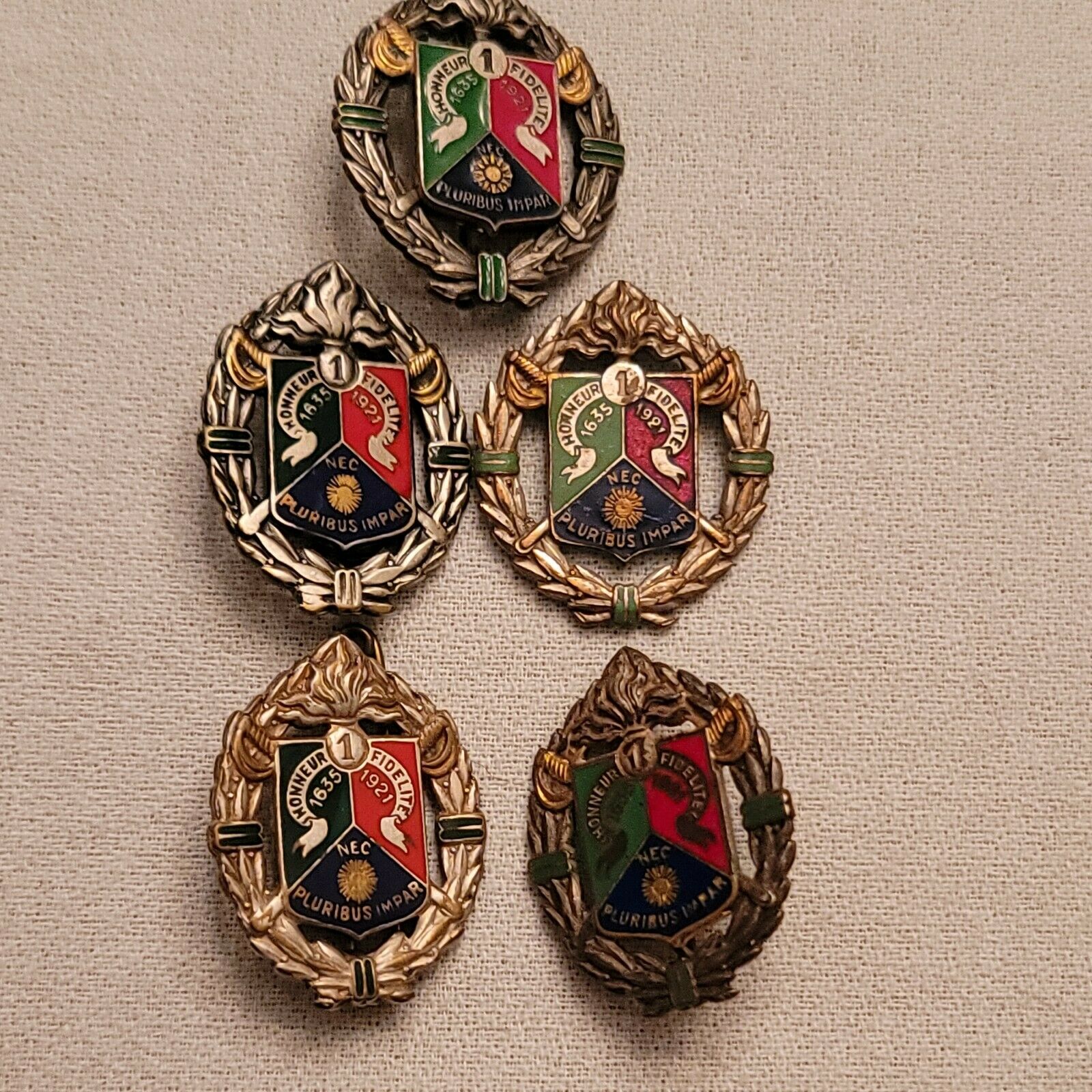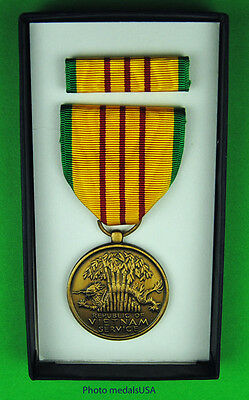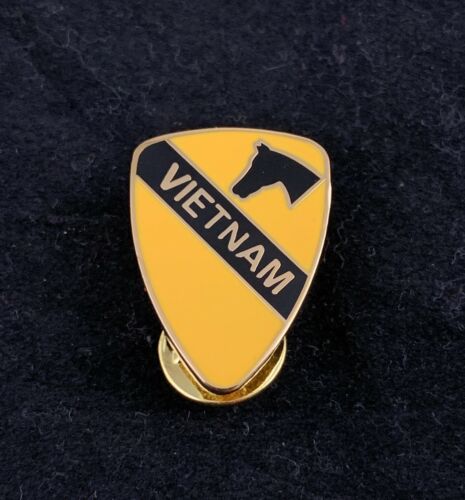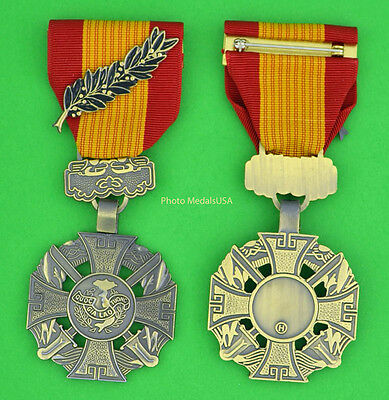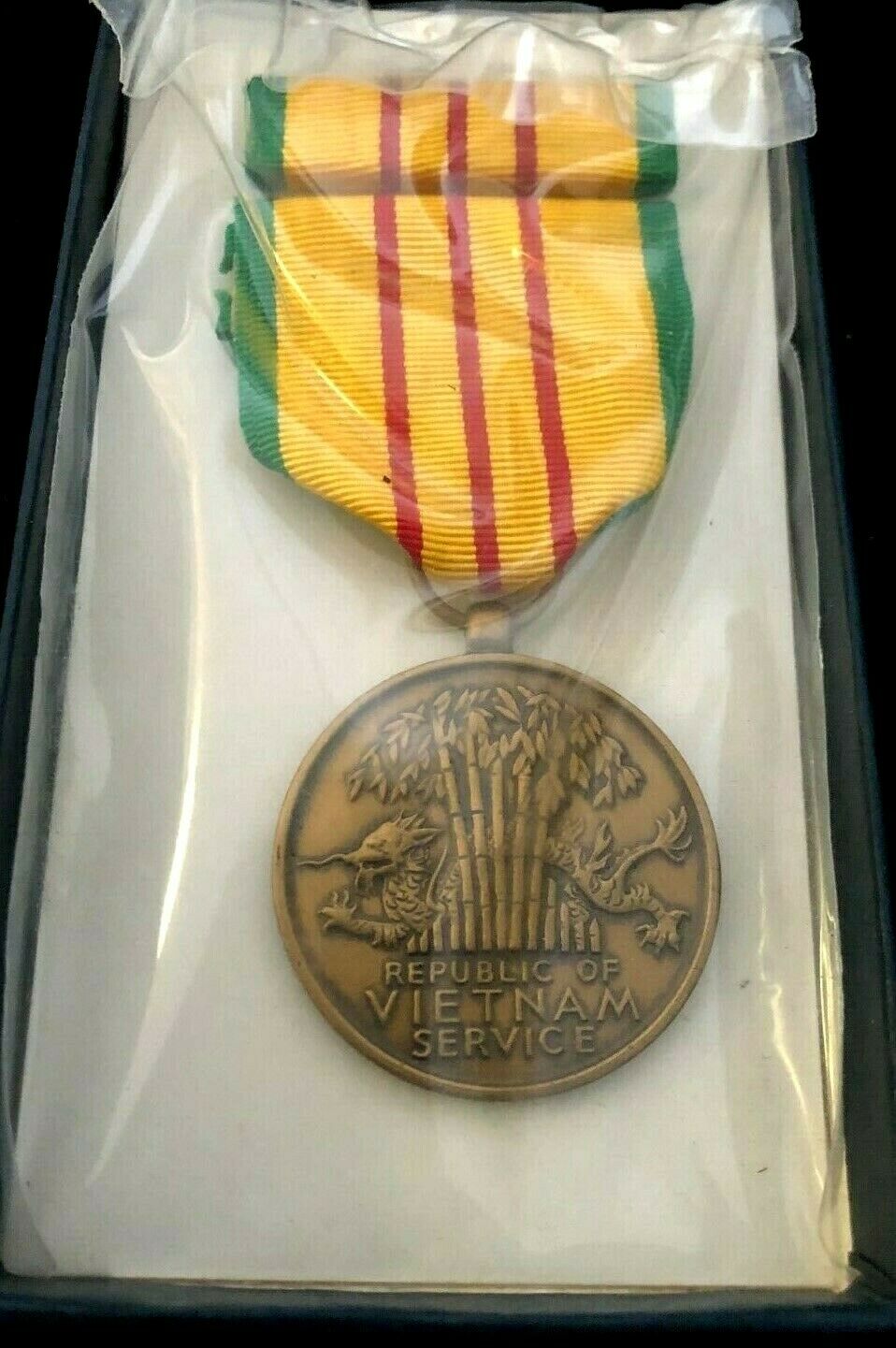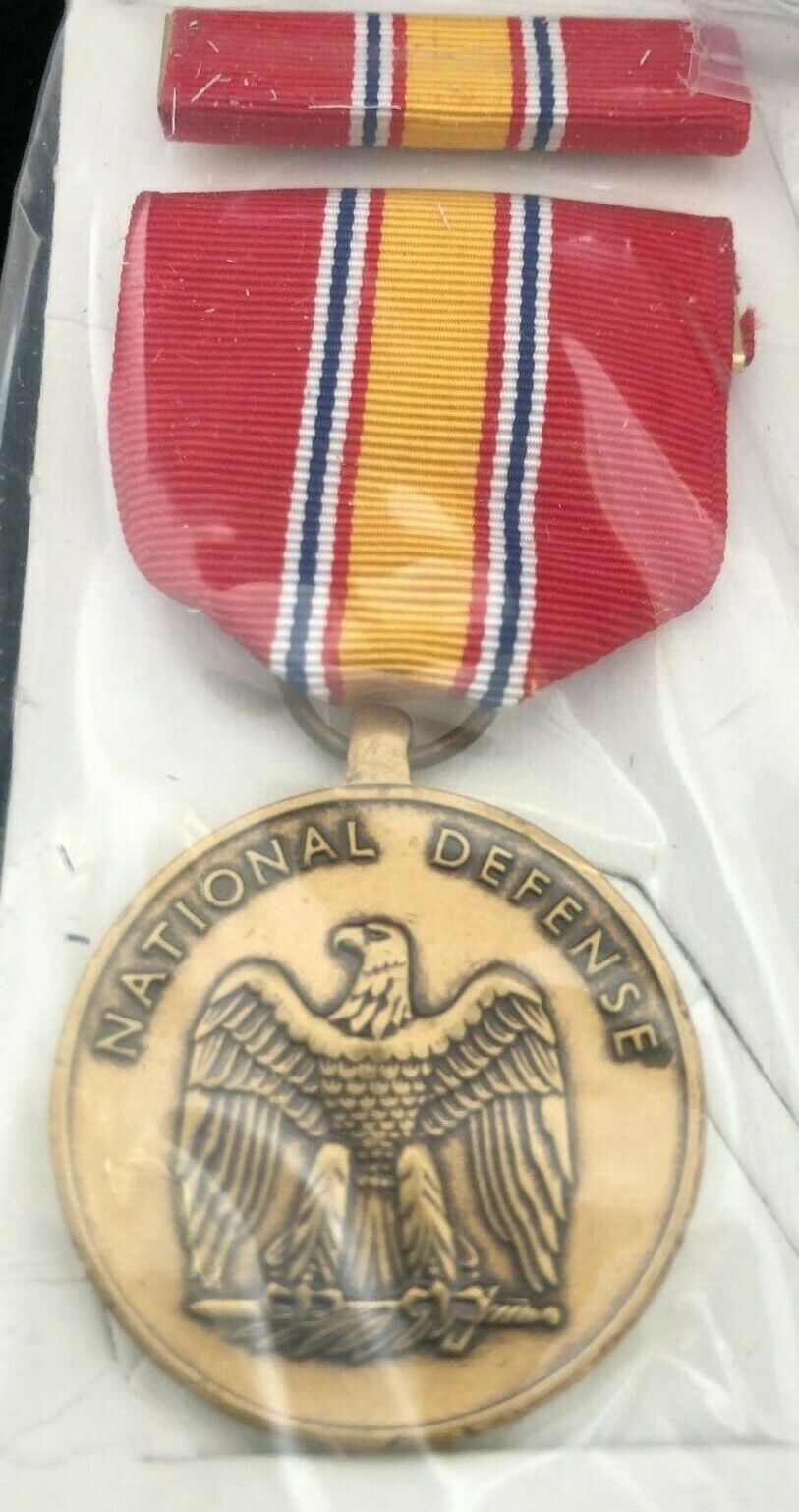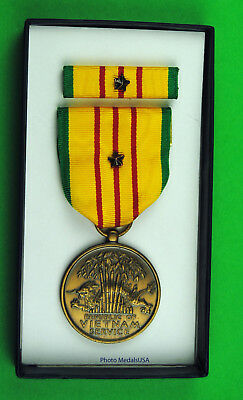-40%
5-1st Foreign Legion Cavalry Regiment-All 5 Are Different--SEE STORE FFL ITEMS
$ 47.51
- Description
- Size Guide
Description
PLEASE FOLLOW OUR E BAY STORESEE ALL PICS
SALE
SEE OUR STORE
PLEASE READ WHOLE ADD
SEE STORE !!!!
1st Foreign Cavalry Regiment
From Wikipedia, the free encyclopedia
Jump to navigation
Jump to search
1st Foreign Cavalry Regiment
1
e
Régiment Étranger de Cavalerie
Regimental Insignia of 1
er
REC
Active
1921 – present
Country
France
Allegiance
French Foreign Legion
Branch
French Army
Type
Armoured Cavalry
Role
Reconnaissance & fire support
Size
~ 1,000
Part of
6th Light Armored Brigade
3rd Division
Garrison/HQ
Camp de Carpiagne
(Bouches-du-Rhône),
France
Nickname(s)
Royal Étranger
Motto(s)
Nec pluribus impar
A nul autre pareil
(To none other equal)
March
La Colonne
(The Column)
Anniversaries
Camerone Day (30 April), Saint-Georges Day and
Christmas
Engagements
Interwar period
Battle of Messeifre
Battle of Rachaya
World War II
Operation Dragoon
First Indochina War
Algerian War
Lebanese Civil War 1975-1990
Multinational Force 1982-1984
Koweït 1990–1991
Global War on Terrorism (2001-present)
War in Afghanistan (1978–present)
Operation Enduring Freedom
Afghanistan
Northern Mali conflict
Commanders
Current
commander
[1]
Insignia
Insignia of the 1st Foreign Cavalry Regiment
Abbreviation
1
er
REC
show
1st Foreign Cavalry Regiment
Each year, the
French Foreign Legion
commemorates and celebrates
Camarón
in its headquarters in
Aubagne
and
Bastille Day military parade
in
Paris
; featuring the
Pionniers
leading and opening the way.
The
1st Foreign Cavalry Regiment
(
French
:
1
er
Régiment Étranger de Cavalerie, 1
er
REC
) is the only cavalry regiment in the
French Foreign Legion
. As of 2009 it was the only armoured
cavalry
regiment of the
6th Light Armoured Brigade
.
[2]
The regiment recently moved camp after being stationed at Quartier Labouche for 47 years in
Orange, Vaucluse
,
France
since it moved from
Mers-el-Kébir
, Algeria in October 1967.
[3]
Contents
1
History
1.1
Levant and Morocco from 1921
1.2
World War II and Indochina War
1.3
Algeria and the modernization of the Regiment
1.4
Within the ranks of the FAR and Division Daguet
1.5
Operations post 1993
2
Organization
3
Equipment
4
Traditions
4.1
Insignias
4.2
Regimental Colors
4.3
Decorations
4.4
Honors
4.4.1
Battle Honors
5
Regimental Commanders
6
See also
7
Notes
8
References
9
External links
History
[
edit
]
Levant and Morocco from 1921
[
edit
]
The 1st Foreign Cavalry Regiment (1
er
REC) was created on March 8, 1921 at
Sousse
from elements of the
2nd Foreign Infantry Regiment
. The title of the 1
er
REC would not become official until January 20, 1922, under Decree n°6330-1/11 of January 20, 1922.
[4]
The cadres of the new unit were drawn from existing French cavalry regiments. Only one junior officer (
Second Lieutenant
Antraygue) had had previous
Legion
experience while one
non-commissioned officer
had been in service with the
1st Foreign Regiment
1
er
RE.
Of the 156 other ranks of the newly formed 1
er
REC, 128 were Russians. A significant contingent hailed from the White Army of
Wrangle
. These included thirty officers (one a former general of the Imperial Russian Army and one a former colonel); 14 non-commissioned officers and 33
Cossacks
. Most of the remainder had served as regular
cavalrymen
with the Wrangle forces.
[4]
Beginning in 1925, the 1
er
REC was engaged as mounted cavalry in
Syria
(4th Squadron ) and in
Morocco
(3rd Squadron). In both theatres of operations, the Foreign Cavalry Regiment served with distinction, notably in the
Levant
at Messifre (September 17, 1925) and at Rachaya (from November 20 to 24, 1925). The
fanion
of the 1
er
REC received the
Croix de guerre des théâtres d'opérations extérieures
with 2 palms, the
fourragère
of the colors of the Croix de Guerre and the 1st Class
Lebanese Order of Merit Medal
.
[4]
From 1927 to 1934, the 1
er
REC saw active service in
Morocco
(3rd, 4th, 5th and 6th Squadrons), followed by patrol work along the northern border of the Sahara.
[4]
In 1934 the 5th squadron was equipped with White-Laffly and Panhard armored cars. The remainder of the regiment retained horses and sabers.
World War II and Indochina War
[
edit
]
In 1939 the two existing regiments of Foreign Cavalry were still only partially motorized. However, in 1940, the 1
e
REC was dispatched to France as part of the
97th Reconnaissance Group of the Infantry Division
(97
e
GRDI). As such it was engaged in combat from May 18 (at the
Somme
) until the Armistice.
[4]
A citation issued at the orders of the Armed Forces praised the heroism of the Legionnaires during this period.
[4]
Following the
Battle of France
the 1
er
REC took up garrison duties in Tunisia.
[4]
In 1943, the regiment was re-equipped with U.S. material, consisted of one light tank squadron and four armored car squadrons. Its new role was that of divisional recce regiment of the newly raised
5th Armored Division
(5
e
DB).
In 1943, the 1
er
REC was engaged against the Germans in
Tunisia
.
[4]
In 1944, the 1
er
REC landed on the
côtes de Provence
as one of the French armored units participating in the Liberation of France.
[4]
At the end of
World War II
, the regimental colors were decorated with two new palms and the fourragère of the Croix de Guerre.
[4]
In 1946, the 1
er
REC embarked for
Indochina
.
[4]
The regimental squadrons plus two
autonomes groups
(detached units) served for nine years in
Cochinchina
and
Tonkin
.
[4]
Three new citations and the fourragère of the Croix de Guerre of TOE were added to the regimental colors, while the two
autonomes groups
earned 6 citations.
[4]
Algeria and the modernization of the Regiment
[
edit
]
After returning to French North Africa in 1954, the regiment was involved in the
Algerian War
for eight consecutive years of active service.
[4]
Following the
Évian Accords
and the independence of Algeria
[4]
the 1
er
REC regrouped at the base of
Mers El Kebir
. It was then reassigned, on October 17, 1967, to peacetime duty in metropolitan France for the first time.
The 1
er
REC was now based at
Orange
in the
Quartier Labouche
garrison.
[4]
Reattached to the 14th Infantry Division (14th DI) on January 1, 1976; the 1st Foreign Cavalry Regiment returned to
Africa
the same year, serving in
Djibouti
and then
Mayotte
.
[4]
In 1978 and 1979, the regiment participated in
Opération Tacaud
in
Tchad
where an Army citation was awarded.
[4]
During this period, the regiment received new equipment, including the
FAMAS
service rifle,
MILAN
anti-tank guided missiles,
VAB
armored personnel carriers, and the
AMX-10RC
armored car.
[4]
From May to October 1983, the 1st Foreign Cavalry Regiment served in three separate deployment areas: within the ranks of the
Multinational Force in Lebanon
; with a tactical command headquarters stationed in
Beirut
; in
Tchad
within the combat deployment cadre of
Operation Manta
; and in
Djibouti
.
[4]
Within the ranks of the FAR and Division Daguet
[
edit
]
The 6th Light Armoured Division (6
e
DLB) operating the left flank of the
34 nations
coalition
during the
Gulf War
.
The 1st Foreign Cavalry Regiment remained within the
Force d'Action Rapide (FAR)
and was part of the
Division Daguet
.
[4]
On July 1984, the Royal étranger was incorporated into the
6th Light Armoured Division
(6
e
D.L.B).
[4]
Engaged in operation Daguet starting September 15, 1990; the regiment as whole was found complete in the desert of
Saudi Arabia
on November 6, 1990.
[4]
Following an initial preparatory phase, the regiment saw service as part of
Operation Desert Storm
.
[4]
On February 23, 1991; the regiment crossed the Iraqi frontier, reached its objective at the D'As Salman air base within 36 hours.
[4]
Victorious, the 1st Foreign Cavalry Regiment intact from personnel or material loss, decorated a new palm on the regimental colors.
[4]
From December 1992 to June 1993, the regiment served in Cambodia as part of the
United Nations
peacekeeping
force (APRONUC).
[4]
Operations post 1993
[
edit
]
Commemoration of the
Battle of Camarón
by the
1st Foreign Cavalry Regiment
at the
Roman
Theatre of
Orange
.
The 2nd Squadron of the Regiment served in
Sarajevo
as part of the United Nations Protection Force (FORPRONU) from October 1993 to February 1994, and subsequently with the cadre of BATINF from January to June 1995. From 1995 to 1996, the 1st Foreign Cavalry Regiment was engaged in the former
Yugoslavia
within the cadre of the force de réaction rapide (FRR) and in
Chad
as part of
Opération Épervier
. From May to September 1996, the 5th Squadron, recreated in July 1993, was first deployed in the
Central Africa Republic
during Operation Almandin II. The 1er REC also participated in
Guyane
,
Mayotte
and
Djibouti
. In 1997, the regiment served in the
Republic of Congo
assisting in the evacuation of refugees. During 1999 the regiment participated in operations with
NATO
forces in
Kosovo
, deploying one armored squadron (5
e
ESC) in the
Macedonia
, then dispatching the scouting squadron in Kosovo. Since then, the 1st Foreign Cavalry Regiment has participated in
Operation Licorne
in Ivory Coast and in
Operation Pamir
in
Afghanistan
In January 2013, an AMX 10 RC unit from the regiment was deployed in
Mali
as part of
Operation Serval
, to counter an Islamist offensive against the local government and engaged in battle for control of the town of Diabaly.
[5]
As of June 2015, with nearly 1,000 men and advanced equipment, the Regiment is on permanent stand-by to undertake any mission being allocated to it.
Organization
[
edit
]
The regiment is currently divided into 7 squadrons
[6]
Escadron de Commandement et de Logistique (ECL)
– Command and Logistics Squadron.
1
er
Escadron
– 1st Squadron (4 combat troops and a command troop)
2
e
Escadron
– 2nd Squadron (4 combat troops and a command troop)
3
e
Escadron
– 3rd Squadron (4 combat troops and a command troop)
5
e
Escadron
– 5th Squadron ( 4 combat troops and a command troop)
[7]
Escadron d'éclairage et d'investigation de brigade (EEI)
– Brigade Reconnaissance Squadron. (4
troops
)
Escadron d'Aide à l'Engagement (EAE)
– anti-tank squadron
Equipment
[
edit
]
Three squadrons are equipped with the
AMX 10 RC
, a light wheeled armoured vehicle armed with a 105mm gun.
[2]
The EEI is equipped with the
Panhard VBL
.
[2]
Traditions
[
edit
]
Insignias
[
edit
]
Regimental Insignia of the 1st Foreign Cavalry Regiment, 1
er
REC
Insignia of the 1st Foreign Cavalry Regiment, 1
er
REC
The
Foreign Legion Groupment
,
G.L.E
in the
31
e
Brigade
featuring
Poseidon
Regimental Colors
[
edit
]
Regimental Colors of the 1st Foreign Cavalry Regiment
Decorations
[
edit
]
fourragère
with ribbon colors of the
croix de guerre 1914-1918
with olives of ribbon color of the
croix de guerre 1939-1945
.
fourragère with ribbon color of the
Croix de guerre des Théâtres d'opérations extérieurs
.
[8]
La
Croix de guerre 1939-1945
with 3 palms.
La
Croix de guerre des théâtres d'opérations extérieures
with 4 palms.
La
Croix de la Valeur militaire
with 1 palm.
4th squadron decorated November 19, 2012, with
Croix de la valeur militaire
with palm ( Afghanistan ).
[9]
Croix de guerre 39-45
Croix de guerre des théâtres d'opérations extérieures
Honors
[
edit
]
Battle Honors
[
edit
]
Camerone 1863
Levant 1925–1926
Morocco 1925–1927
Ousseltia 1943
Colmar 1945
Stuttgart 1945
First Indochina War 1947–1954
AFN 1952–1962
Koweït 1990-1991
[10]
[11]
Regimental Commanders
[
edit
]
Main articles:
Foreign Legion Command
and
Honneur et Fidélité
Tenure (1921 - 1939)
1921 – 1922 :
Colonel
Perret
1922 – 1923 :
Lieutenant Colonel
Sala
1923 – 1925 : Colonel Maurel
1925 – 1931 : Colonel Sala
1931 – 1932 : Colonel Burnol
1932 – 1935 : Colonel Bonnefous
Tenure (1935 - 1946)
1935 – 1940 : Colonel Berger
1940 – 1943 : Colonel Levavasseur
1943 – 1945 : Colonel Miquel
1945 : Major Lennuyeux
1945 – 1946 : Colonel Robert
1945 – 1946 : Lieutenant Colonel Marion
Tenure (1948 - 1956)
1948 – 1949 : Lieutenant Colonel Doré
1949 – 1951 : Lieutenant Colonel de Battisti
1951 – 1952 : Lieutenant Colonel Royer
1952 – 1953 : Lieutenant Colonel Deluc
1953 – 1954 : Lieutenant Colonel Hardoin
1954 – 1956 : Lieutenant Colonel Coussaud de Massignac
Tenure (1955 - 1975)
1956 :
Commandant
Ogier de Baulny
1956 – 1958 : Lieutenant Colonel Spitzer
1958 – 1960 : Lieutenant Colonel Hervé Le Barbier de Blignères
1960 – 1961 : Lieutenant Colonel de la Chapelle
1961 – 1962 : Lieutenant Colonel Barazer de Lannurien
1962 – 1963 : Lieutenant Colonel de Monplanet
1963 – 1965 : Lieutenant Colonel de Froissard de Broissia
1965 – 1967 : Lieutenant Colonel Ansoborlo
1967 – 1969 : Lieutenant Colonel Bart
1969 – 1971 : Lieutenant Colonel Caillard d'Aillières
1971 – 1973 : Lieutenant Colonel Fesneau
1973 – 1975 : Lieutenant Colonel Lorho
Tenure (1975 - 1995)
1975 – 1977 : Lieutenant Colonel Devouges
1977 – 1979 : Lieutenant Colonel
Raymond Le Corre
1979 – 1981 : Lieutenant Colonel Audemard d'Alançon
1981 – 1983 : Lieutenant Colonel de la Presle
1983 – 1985 : Lieutenant Colonel Ansart de Lessan
1985 – 1987 : Colonel Belloir
1987 – 1989 : Colonel Badie
1989 – 1991 : Colonel Ivanoff
1991 – 1993 : Colonel Yves de Kermabon
1993 – 1995 : Colonel
Franceschi
Tenure (1995–present)
1995 – 1997 : Colonel H. Clément-Bollée
1997 – 1999 : Colonel Colas des Francs
1999 – 2001 : Colonel Bertrand Clément-Bollée
2001 – 2003 : Colonel Yakovlev
2003 – 2005 : Colonel
de Saint-Chamas
2005 – 2007 : Colonel Windeck
2007 – 2009 : Colonel Dupont
2009 – 2011 : Colonel Gilles Jaron
2011 – 2013 : Colonel Jean-Christophe Béchon
2013 – 2015 : Lieutenant Colonel Rémi Bouzereau
[12]
2015 - 2017 : Colonel Valentin Seiler
2017 - 20** : Colonel Olivier Baudet
